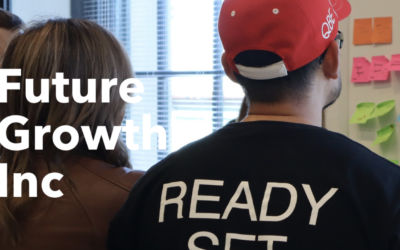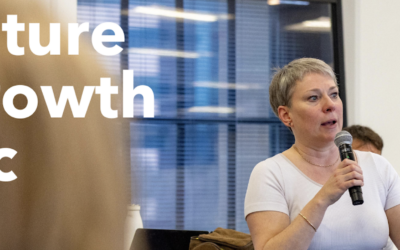They say that “data is the new oil” – that it is becoming the world’s most valuable resource. For years, policy makers have been capturing data and using it to make decisions – that’s the concept behind the Census. More recently, businesses and social networks have been using data to make organisational and marketing decisions – changing their supply chains, investment plans and sales strategies.
But what if we could use data to solve social problems?
Back in July, when we were first planning Vibewire’s #Hack4Homelessness – a new and creative attempt to solve the social, technical, cultural and behavioural challenges of homelessness, we knew we would need data. Having run dozens of hackathons and innovation programs for large enterprise clients over the last few years, we knew that data wasn’t just an option. It was THE oil that makes the difference between a good idea and an amazing solution.
So when the Minerva Collective came on board as a partner, we were very excited. It is clear that homelessness is an intractable problem – programs have been developed and resources created. People work tirelessly to solve it. And yet, it persists. We need a different approach.
Last week, the Minerva Collective assembled over 60 data scientists at Stone & Chalk to explore how data may be able to be used to create new solutions to homelessness. Breaking into “swarm” groups they were able to draw upon the public data sets that we found and were able to access. They were also able to register for access to the new Domain Group APIs to find data about agencies and listings, content from the Domain Group editorial team and properties and their locations.
Out of this “swarm”, the data scientists some great ideas to help the the solving teams during the hackathon. These include the following:
I
We were told that it takes several years for a homeless person to get affordable housing and therefore off the waiting list. One idea that came to mind (but might not be feasible) is to make use of available (and under-used) living spaces rather than waiting for more apartments to be built. I was thinking of matching up elderly people living in big houses/apartments with homeless people who are willing to work and get free accommodation in return.
I can imagine that there are many elderly people in the Sydney area who’d rather stay in their own home rather than moving into an old age village. However, they are often lonely and need help around the house. This is where homeless people could come in. An app could be built that matches up profiles of homeless people with elderly people. This whole process would of course have to be monitored (as many homeless people deal with mental illness). Also, this would most likely only provide short-term accommodation, but gives the homeless people more time to focus on finding a job without having to live on the street.
II
One member in our group mentioned that it is difficult to reach homeless people and that they are often not aware which documents are needed to be added to the list to get affordable housing. Maybe an app for homeless people could be built with all the important information available. This could consist of check-lists of forms needed, GPS locations of food-trucks, and lists of help services available for the homeless.
III
Our concept is already made progress. At Refugees Welcome we aim to connect people seeking asylum or people of refugee backgrounds to homes with spare rooms, so that it is a more affordable (or sometimes free) living arrangement where they can have a sense of belonging, be treated with dignity and feel safe. We currently are doing a lot of this work manually ourselves but envision technology to play a bit part of the screening and filtering process.
IV
- Housing theme :
- Consider how to provide a fixed address, for people to maintain their ids. (i.e fore Work with Services & AusPost to ensure that a place is available to receive and collect mail.
- A co-op body with access to rental properties and allow for price control rental (i.e. Similar to Defence Housing Co-op).
- Community theme:
- Access to unused land for a community garden to grow and farm to address issues of access to fresh and healthy food services and the potential to provide employment.
- Consider the issue of Youth without a place to call “Home”, young people with no permanent place to call home during critical education period Year 10 to HSC. These are young people not yet sleeping rough, but a moving from home to home. How are these young people identified and what can be done to prevent permanent homelessness.
- Identification theme:
- Consider tackling how people could maintain a 100 pts check with no fixed address to allow access to services such as bank account, apply for a private rental.
- Data Unification Theme:
- We propose a close look at how to bring the various data sources together to give a complete and holistic picture of homelessness, to allow research and policy maker to map, identify, understand & take action to prevent or circumvent homelessness.
- A visualization of the various issues related to homelessness to be highlighted these infographics/data visualization could be made available various agencies or peak body to use to highlight homelessness
We are looking forward to seeing how the hackers, hipsters, hustlers and humanitarians at the hackathon bring this all together. Be sure to follow along with the #hack4homelessness hashtag during the event.



